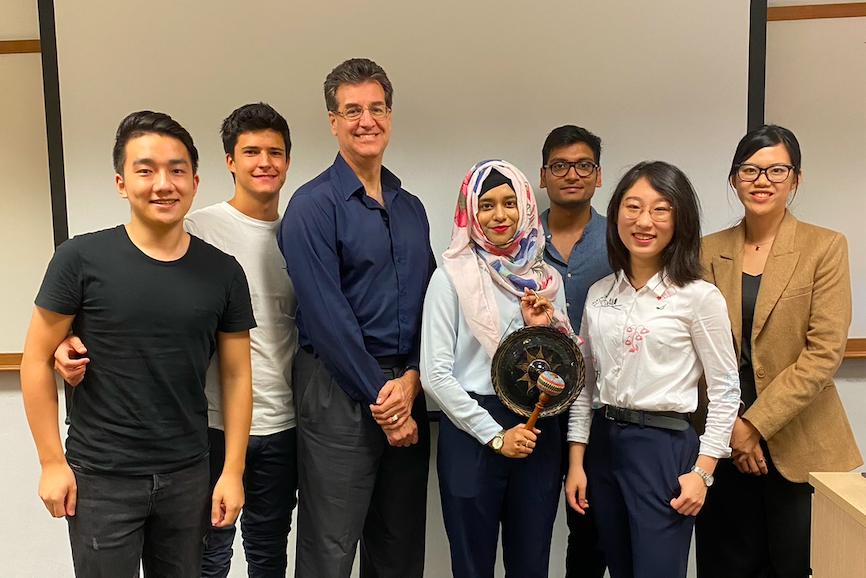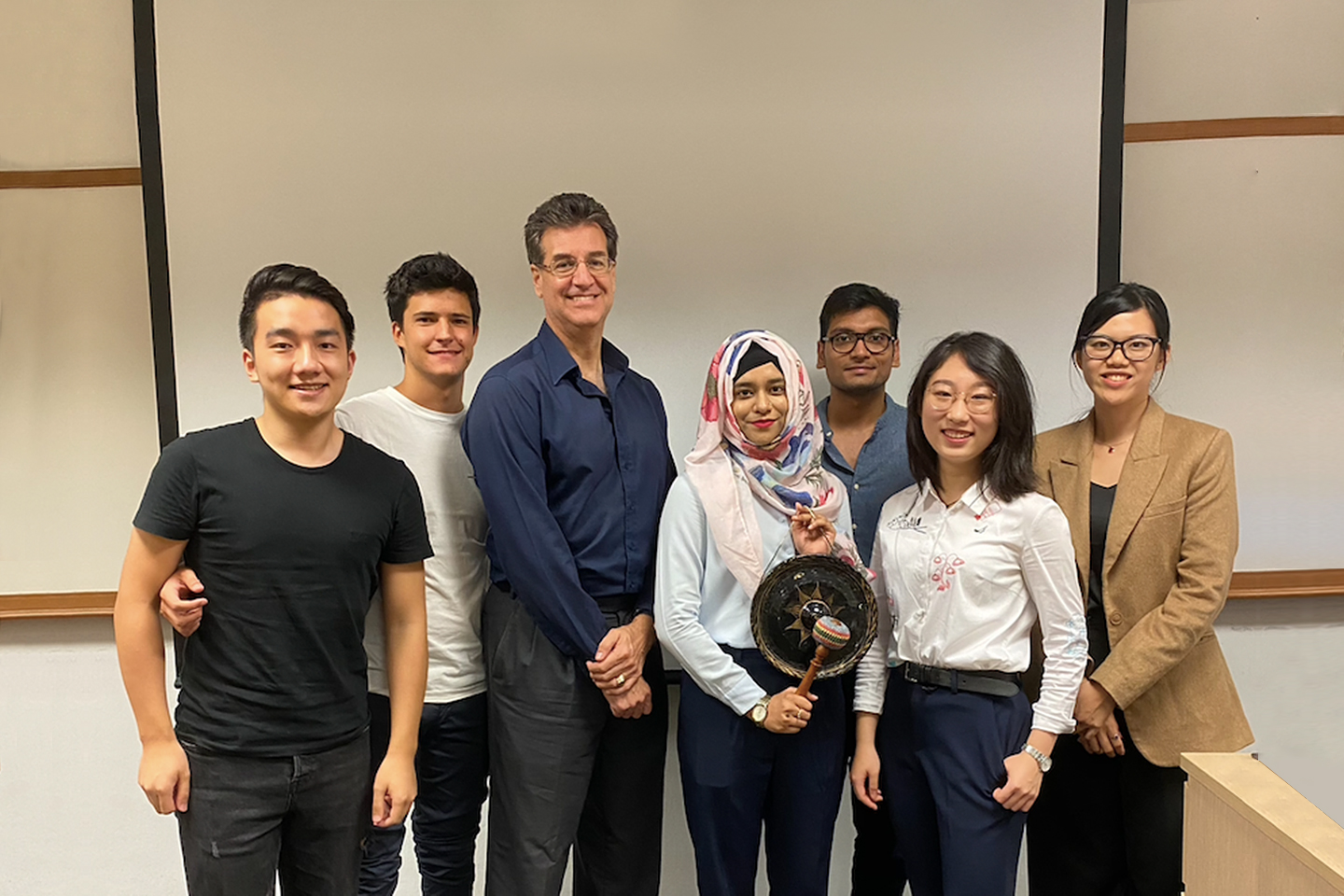The School’s some 130 international faculty offer broad industry experience and seasoned business insights, preparing students for the economy. Outside-In delves a little deeper with the help of MSc in Management student and The Masters Club President, Bryan Bews.
In the second of a three-part series, Bryan spoke with Visiting Senior Fellow Alex Capri to find out more about his module, The Knowledge and Innovation Economy 4.0. He also discusses the impact of COVID-19 has the economy and society.

Alex (third from left) in a The Knowledge and Innovation Economy 4.0 class with his students. Photo was taken before the introduction of social distancing measures.
Q: Can you briefly explain what is The Knowledge and Innovation Economy 4.0?
Knowledge and innovation economy is a central part of the global economy – it is an essential part of the political and ideological landscape, because it reflects all of those things that interact with technology.
There is so much going on as we are witnessing this process of a systematic rivalry now. We are seeing China with its own set of values using technologies to advance its objectives and then you have the West and its value systems.
While this creates tensions and problems, it also results in opportunities to innovate. This leads to a cycle of constant innovation which is critical to understand. That is what my class is all about and what students can learn through being part of it.
Q: We have a pandemic going on; what would you say is the consequence for the future of knowledge and innovation?
COVID-19 is an accelerator of many existing trends. For instance, it accelerated strategic decoupling between China and the US and the West, when it comes to sensitive technologies around national security. We see efforts to ring-fence critical value chains on the ground of “national security” regarding the pharmaceutical industry or medical devices industry, for example, and even with the automotive and semiconductors industry.
COVID-19 also presents new opportunities for work-from-home and e-commerce technologies.
Q: The pandemic has also transformed the way we work and study. How do you cope on a personal level?
When you are working from home there seems to be this never-ending stream of information and online activities, leading to you not being able to shut down.
In other words, the real challenge for me is having this constant stream of emails and now having social media platforms and conferencing tools. It has become necessary to balance this with personal life since this line between the two is becoming more blurred.
The long-term challenge will then be to manage mental and physical health and really allocate time for friends, family and leisure. That has been my challenge. Finding that healthy routine will be important for everyone.
The original article first appeared in The Master’s Club LinkedIn page. The Master’s Club is the MSc programmes’ student leadership body.




